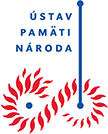HALADOVÁ, Silvia. Cumulative sentences handed down to the so-called wealthy villagers by the example of three families from the Trnava District
After the Communist coup in February 1948, Czechoslovakia began to build a people's democratic state, which led to the reorganisation of society under Moscow's dictate. The Communist regime used many forms of persecution with a community-wide scope to advance its intentions. Fundamental changes also affected the agricultural sector, as the communists gained exclusive powers in the direction of agricultural policy, its legislative framework and comprehensive management. Those who suffered most from the consequences of the repression of the peasantry were the so-called wealthy villagers, whom the regime identified as the main class enemies. Private peasants were gradually confronted with the application of multiple sanctions, and as the number of prosecuted peasants increased, there was often an unlawful accumulation of punishments. Many convicts were not only sentenced to imprisonment. They also had to pay financial penalties, they lost civil rights, their property was confiscated or they were not allowed to live in the relevant district or county. The convicted peasants, who in various ways disrupted the socialization process of villages, felt the harsh impact of the repression by the forced displacement of all family members from their former place of residence. Examples of the mentioned displaced families draw attention to the seriousness of this communist regime's criminal activity.

Updated at: 02.05.2022
Print Tweet